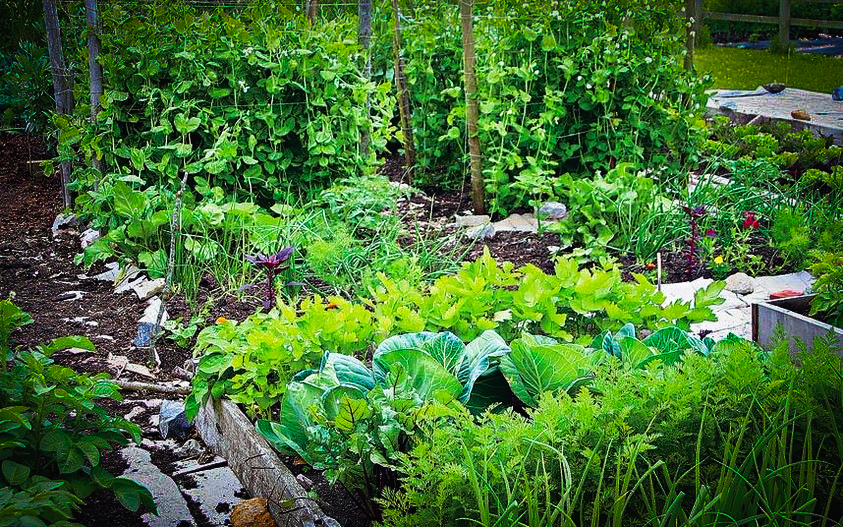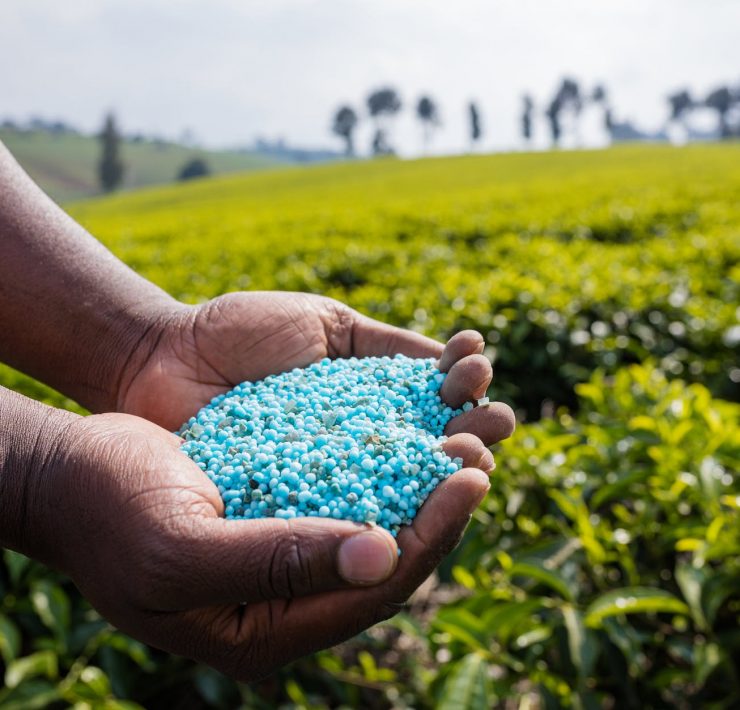Companion Planting: How Plants Help And Support Each Other

Anselm Adodo is the Director of Africa Centre for Integral…
Companion planting is a clever gardening technique that involves growing different plants together to benefit from their positive interactions. It’s like having plant buddies that support each other’s growth and health. This strategy can be used in vegetable gardens, flower beds, and even larger farms in Africa.
Let’s look at some plant partnerships and how they contribute to soil health:
1. Cassava and beans: These two plants make a great team. Cassava needs lots of calcium and potassium, while beans can capture nitrogen from the air and add it to the soil. By working together, they both get what they need to grow strong and healthy.

2. Beans and yam plants: Beans have a special power to convert nitrogen from the air into a form that plants can use, and yam plants benefit from this nitrogen boost, which helps them grow better and meet their nutrient requirements.
3. Tomatoes and basil: They are like best friends in the garden. Basil repels pests like aphids and whiteflies that often bother tomato plants. It also attracts helpful insects such as bees and predatory wasps, which help with pollination and controlling pests.
4. Ginger and turmeric: These are a great match because they have similar needs and can share the same root system. Their dense leaves also help keep weeds away and retain moisture in the soil, which benefits both plants.
5. Carrots and onions: They make a good team because they protect each other from pests. Onions repel carrot flies, while carrots are a natural barrier against onion fly infestations. By growing together, they can prevent pest damage and increase crop yield.
6. Garlic and roses: Garlic can be a superhero for roses. Planted near rose bushes, it repels pests like aphids and protects the roses from diseases such as black spots and powdery mildew. Plus, the sulphur compounds in garlic enhance the scent and flavour of roses.
7. Marigolds and eggplants: Marigolds are great companions for eggplants. They help deter pests like nematodes, aphids, and whiteflies, reducing the chances of infestation. By planting marigolds nearby, you can keep your eggplants healthy and pest-free.
8. Sunflowers and okra: Sunflowers can be a helpful friend to okra plants. With their tall stems, sunflowers support okra to grow vertically, saving space and making harvesting easier.
9. Maize and beans: Maize and beans have a long-standing partnership in traditional farming systems. Beans have the amazing ability to capture nitrogen, which is beneficial for nitrogen-hungry maize plants. In return, maize serves as a natural trellis for the beans to climb, making efficient use of space.
10. Cowpeas and sorghum: Cowpeas and sorghum are often grown together in Africa. Cowpeas fix nitrogen, which helps sorghum meet its nitrogen requirements. Additionally, sorghum provides shade and support for the cowpeas, creating a win-win situation.
11. Moringa trees and cassava: They can be grown together to improve soil conditions. Moringa trees have deep roots that help break up compacted soil and enhance nutrient availability for cassava plants.
These examples showcase the amazing diversity of African plants and how they can work together to improve intercropping, nutrient cycling, pest management, and overall sustainable farming practices. By harnessing these plant interactions, African farmers can boost productivity, enhance soil health, and build resilience in their agricultural systems.
What's Your Reaction?
Anselm Adodo is the Director of Africa Centre for Integral Research and Development, Nigeria and founder of Arica's foremost herbal research Institute, the Pax Herbal Clinic and Research Laboratories (Paxherbals). His research interest is Phytomedicine, Taxonomy of African medicinal plants, indigenous knowledge systems, rural community development, Africanized economic models, health policy reform, and education transformation in Africa. Apart from publications in journals, magazines, national dailies and peer-reviewed journals, Anselm has written more than ten books. He is an adjunct visiting lecturer at the Institute of African Studies, University of Ibadan, Nigeria, an Adjunct Research Fellow of the Nigerian Institute of Medical Research, a Fellow of the Nigerian Society of Botanists, a Research Associate at the University of Johannesburg, South Africa, and an adjunct professor at Morehouse School of Medicine, Atlanta, Georgia, USA.
















